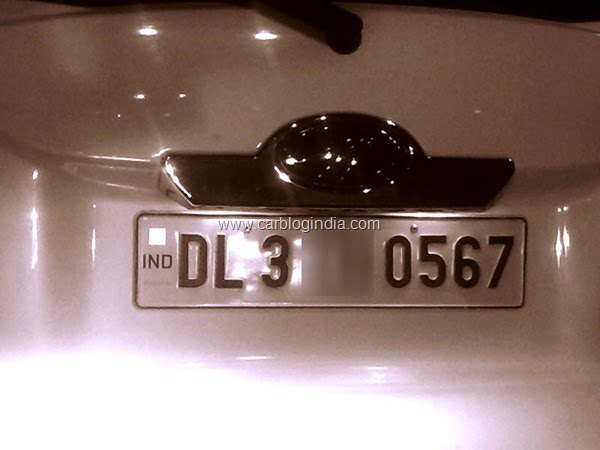After High Security Registration Plates (HSRP) were made mandatory in New Delhi from 1 May 2012, it was planned to launch gradually in other states of India gradually on phased manner. After new Delhi, now the neighboring state Haryana has also made these high security number plates mandatory for all new vehicles registered in the state as announced by Additional Chief Secretary (Transport) Ramendra Jakhu on 12th July 2012 in Gurgaon, Haryana.
The high security plates are made up of aluminium metal and has special kind of embossed script used to print the registration number on it which is visible from a distance of up to 200 meters even in the dark as it reflects light in a good manner. There is also IND mark scripted on it along with a laser-readable hologram sticker which has a code encoded into it which can be read by high special laser cameras which can be installed on roads to monitor the movement of such vehicles with HSRP or high security number plates.
Another important feature of these number plates is their special snap lock which is kind of a riveted lock unlike the screws used in ordinary number plates. These locks break if someone attempts to remove the HSRP from the vehicle, this way it prevents the use of counterfeit plates to prevent thefts and vehicle related crimes which are reported quite often in India.
These HSRPs will be made by a private company which has been selected by the authorities to supply these plates. These plates will be fitted in all kind of vehicles from two wheelers to trucks. The prices charged for a HSRP in Haryana state are as follows:
- For Motorcycles in Haryana the rate for a HSRP is Rs. 121
- For Scooter in Haryana the rate for a HSRP is Rs. 140
- For Three Wheelers in Haryana the rate for a HSRP is Rs. 161
- For Cars, SUVs and Light Motorized vehicles in Haryana the rate for a HSRP is Rs. 364
- For Commercial and Heavy Motorized vehicles in Haryana the rate for a HSRP is Rs. 280
- For Tractors in Haryana the rate for a HSRP is Rs. 121
You can get more information from your nearest RTO office. Stay tuned for latest updates from Car Blog India.


